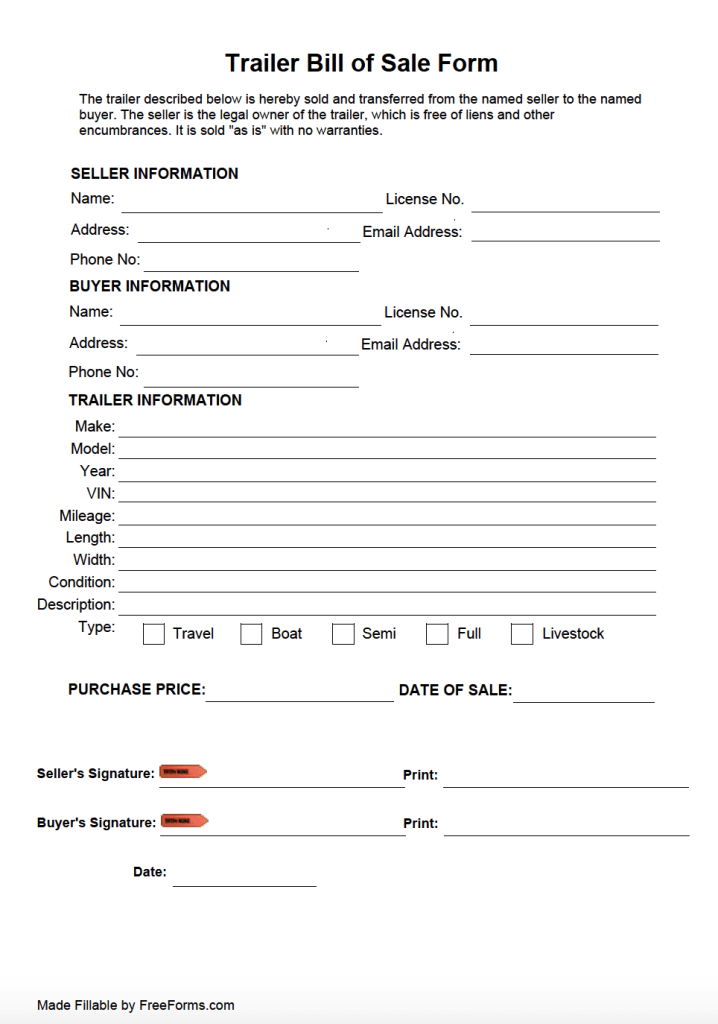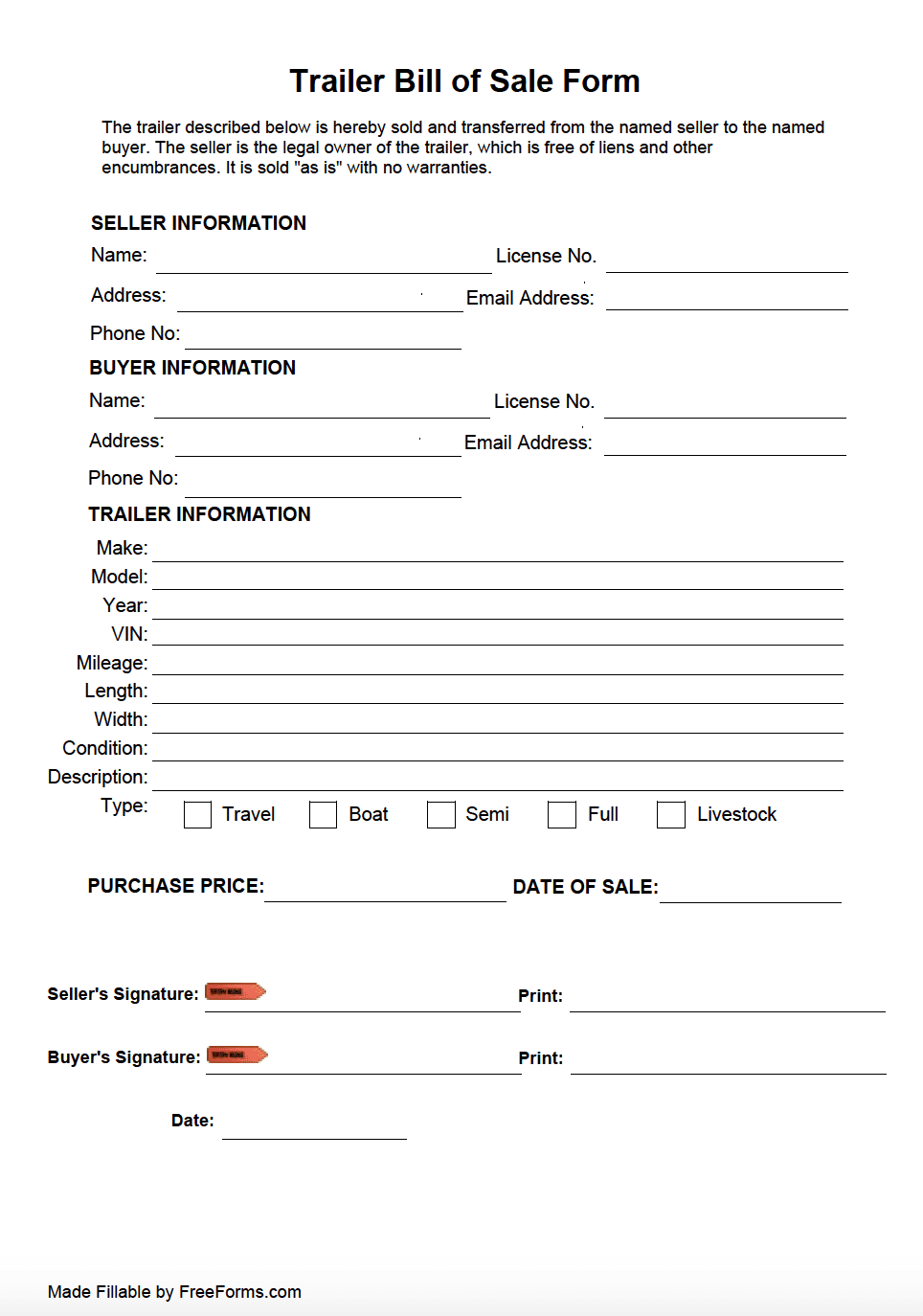Does a Trailer Need a Bill of Sale?
Taking the necessary steps to secure a bill of sale when transferring to a new owner is a sound business decision, even if it may not be required in your state of residence. However, many U.S. States require a bill of sale to legally illustrate the vehicle changing hands and the corresponding details involved. Some states may mandate it to be signified on the bill of sale for another vehicle that includes a trailer. For example, if a watercraft purchase includes a boat trailer, the trailer information must also be listed in the title and registered appropriately. It is a smart way to ensure transparency within the sale, record the accompanying specifics, and present evidence of a legitimate exchange, should it ever come into question.
How to Sell a Trailer
Step 1 – Fix any Significant Issues
When selling an item, the better its condition appears to be, the higher the yield. Wash your trailer and pay attention to problem areas that may accrue dirt, mud, or dust easily. Check your trailer for any damages that may need repair, as visible issues can signal buyers that they can find a better product elsewhere or fuel negotiations for a price reduction. Check for any areas where rust presents itself, check tire air pressure, coupling brakes, and lights to confirm it is in safe running condition, and make any adjustments as needed.
Step 2 – Set an Appropriate Sales Price
When it comes time to establish a price to sell for, you want to do your research. You can inquire about the used book value on NadaGuides.com for a general idea of its worth. Couple that with investigating what similar year, make, and models are selling for within your region and online. Obtaining prices for at least three comparable trailers for sale can also give you an edge when a potential buyer questions your pricing evaluation.
Step 3 – Publicize the Trailer
When advertising the trailer, include all the essential information in your ad description, including trailer type, year, make, model, size, load capacity, and style. Photos are vital in marketing your trailer; focus on many angles and include close-ups of any moving parts or areas exhibiting rust or damage. If areas are damaged, you will want to point them out in your ad or list them as an “as is” sale. Provide any contact information you would like to disclose to those with a potential interest in buying, such as a phone number and email. You can explore various avenues to promote the sale and attract as many potential buyers as possible. Park the trailer in front of your residence with a “for sale” to entice a sale from passersby. List an ad in your local newspaper or community flyer, or to reach a broader audience online, market it on Craigslist or eBay. For websites explicitly geared toward selling trailers, you can also look to TrailerTraders or Trailer Shopper to list an online classified or Trailers for Less if you are looking for an option to have someone else conduct the sale for you.
Step 4 – Manage the Sale of the Trailer
When you have found a possible buyer for the trailer, you will want to meet in a public place to have them inspect the vehicle and negotiate the details for purchase. Once the buyer and seller agree on a reasonable purchase price, you will want to meet again to sign the bill of sale and exchange the cash for the vehicle. An ideal setting for the transaction would be at a local bank to verify that the money is authentic tender before handing over the trailer. Complete the sale and provide the buyer with the title, registration, keys, and any materials associated with the vehicle.
Step 5 – Registering Your Trailer
To utilize your trailer on public roads, it must be registered by your state of residence. The process will depend on your state’s policy, but many states require you to complete the procedure within the first 30 days of the purchase. To do so, you must produce the bill of sale, a signed-over title, a completed and signed trailer registration application, valid identification, and proper payment for fees and taxes. You may also be required to provide active trailer liability insurance and previous registration. Contact your local DMV or state transportation agency to confirm the exact details.

